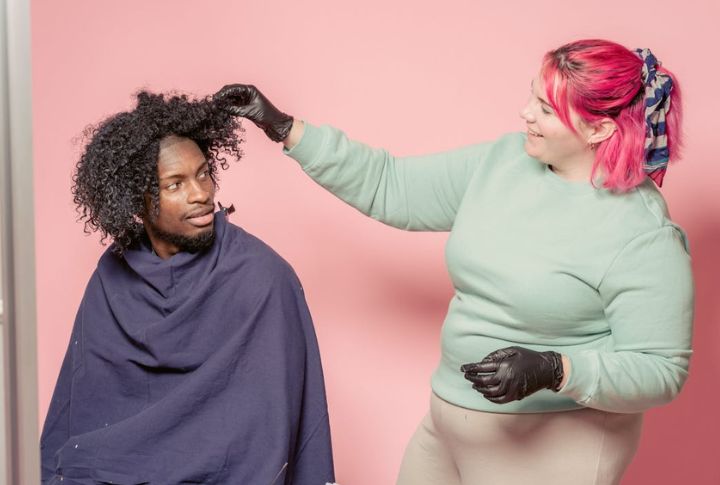
Ever wonder what separates the effortlessly charming from the socially clumsy? It’s knowing the right thing to say in every scenario. Truly polite people have an unspoken radar for comments that can make others uncomfortable or just plain annoyed. These are the little things that slip into conversations and leave a bad taste behind. If you want to master the art of gracious living, start by steering clear of these subtle conversation killers. Here are 20 things that people should never say in public, and for good reason.
You Look Tired

What may seem like a caring observation can be perceived as an insult. Telling someone they look tired can imply they look worn down or even unattractive, and that’s rarely the message you want to send. A more polite approach would be asking, “How are you feeling?” instead.
How Much Do You Make?

Mentioning someone’s salary in public oversteps personal boundaries. Income discussions often place people in uncomfortable situations, sometimes sparking tension. Also, those with good manners treat financial details as private, not as casual conversation fodder.
You’ve Gained/Lost Weight

Even with good intentions, comments about weight often hurt. Physical changes sometimes reflect private battles. Drawing attention to them in public leaves people feeling vulnerable. In fact, these remarks uphold unhealthy beauty standards and diminish the person behind the image.
Calm Down

The phrase “Calm down” rarely has the intended effect. It trivializes the other person’s emotions, suggesting they’re overreacting or being irrational. In heated moments, what people need is understanding, not command. Well-mannered folks hold space for emotions and listen.
At Least…

When someone opens up about a challenging experience, the last thing they need is to be brushed aside with “At least…”. These sentences downplay real emotions. They may come from a desire to help, but they often shut down the conversation. Respectful individuals practice empathy by simply listening, not rushing to silver linings.
No Offense, But…

If a sentence starts with “No offense,” chances are something offensive is about to follow. This phrase tries to mask criticism as harmless truth, but it rarely softens the blow. Instead, it signals that the speaker knows their comment is hurtful and says it anyway. Truly polite people deliver feedback privately, with kindness.
When Are You Going To Settle Down?

What might feel like small talk to one person can be a landmine for another. These questions pry into deeply personal life choices and assume everyone’s journey should follow the same script. Not everyone wants to get married or have kids, and some may even be struggling silently with fertility or relationship issues.
That’s Stupid

Shutting someone down with harsh labels like “stupid” or “ridiculous” is a surefire way to kill healthy conversation. It instantly belittles the speaker and dismisses their ideas without giving them a chance. The best way out for you is to engage with disagreement respectfully. Say, “I see it differently,” instead. It keeps the dialogue open without being demeaning.
You’re Overreacting

Much like “calm down,” this phrase undermines a person’s feelings and puts the speaker in a position of judgment. It sends the message that your feelings are too much, and I don’t want to deal with them. Try asking, “What’s making you feel this way?” and then help them deal with it with empathy.
That’s How It Has Always Been Done

You will rarely hear polite people saying that they have a particular way of doing things and that is the only way it can be done. Such comments can brush aside a fresh idea and belittle someone who might have a better reason for doing things in another way. Kind people are all about being open to new and improved ways.
You Need To Smile More

It polices someone’s expression and implies that their natural demeanor isn’t good enough. Smiling should be spontaneous, not socially demanded. Understand that respect means accepting people as they are, not telling them how they should look. A genuine connection never starts with forced cheer.
What Are You?

Asking someone about their background, race, or heritage can sound demeaning. It feels like one could be stereotyping the person in question and trying to put a label on them. People with a real sense of conversation avoid classifying people or passing judgment on others based on their heritage.
I’m Just Being Honest

Honesty should not be a license to be rude to someone. Use of this phrase is generally sugarcoating something disturbing and can be hurtful to the listener. After all, there is no need to comment on things that could hurt someone, especially if you are standing with a group listening in on your conversation.
Is That Real?

Comments about someone’s appearance can feel invasive and inappropriate. Whether it’s about extensions or natural features, asking if something is “real” suggests doubt and judgment. Polite people don’t make others feel like they’re on display. Respecting bodily autonomy means keeping personal curiosities in check.
You Always/Never…”

Telling someone they “always” do something wrong or “never” get it right shuts down communication and sparks defensiveness. Tactful people speak of specific actions, not sweeping labels. It’s better to refer to a particular action in the moment to avoid instigating an unwanted fight.
Why Are You Still Single?

Being in a relationship is a personal choice, and not everyone wants to get into it. These types of questions can sound judgmental and invasive. Relationships do not run on a timeline, and tactful people understand that it is better to thrive solo than be stuck with someone who does not match your vibe.
Look At That Person Over There…

Pointing out a stranger’s appearance or behavior in public may feel like casual observation, but it’s often just thinly veiled gossip. It invades the privacy of someone who didn’t ask to be part of your conversation and risks embarrassing others nearby. So, it is better to avoid stirring up gossip about someone you hardly know.
You’re Too Sensitive

Sensitivity should be met with care and appreciation. Dismissing the feelings of someone with a high EQ can damage their trust and emotional safety. When someone opens up, they’re offering a window into their inner world and trust you enough to bare their soul to you.
I Heard That..

Gossip rarely leads to anything good. Starting a sentence with “I heard” opens the door to rumor and misinformation. It can reflect poorly on the speaker. Polite people know that if a story isn’t theirs to tell, it’s better left unsaid. It is best to avoid being a part of such conversations, even if someone else is doing it.
Wow, That’s Ugly

Honesty should never come at the cost of someone else’s dignity. Making blunt comments about someone’s appearance, taste, or belongings in public can cause embarrassment and hurt. Taste is deeply personal, and what one person dislikes might hold meaning for someone else. Thoughtful people choose to keep their opinions to themselves.

